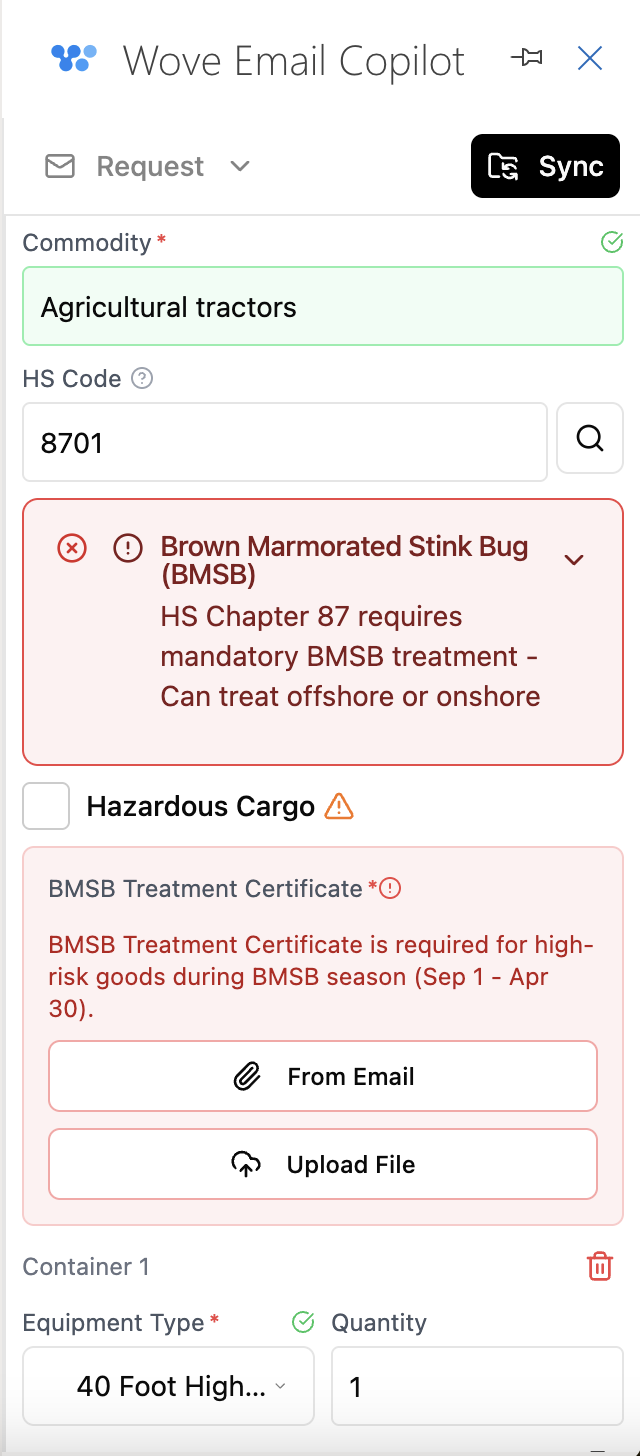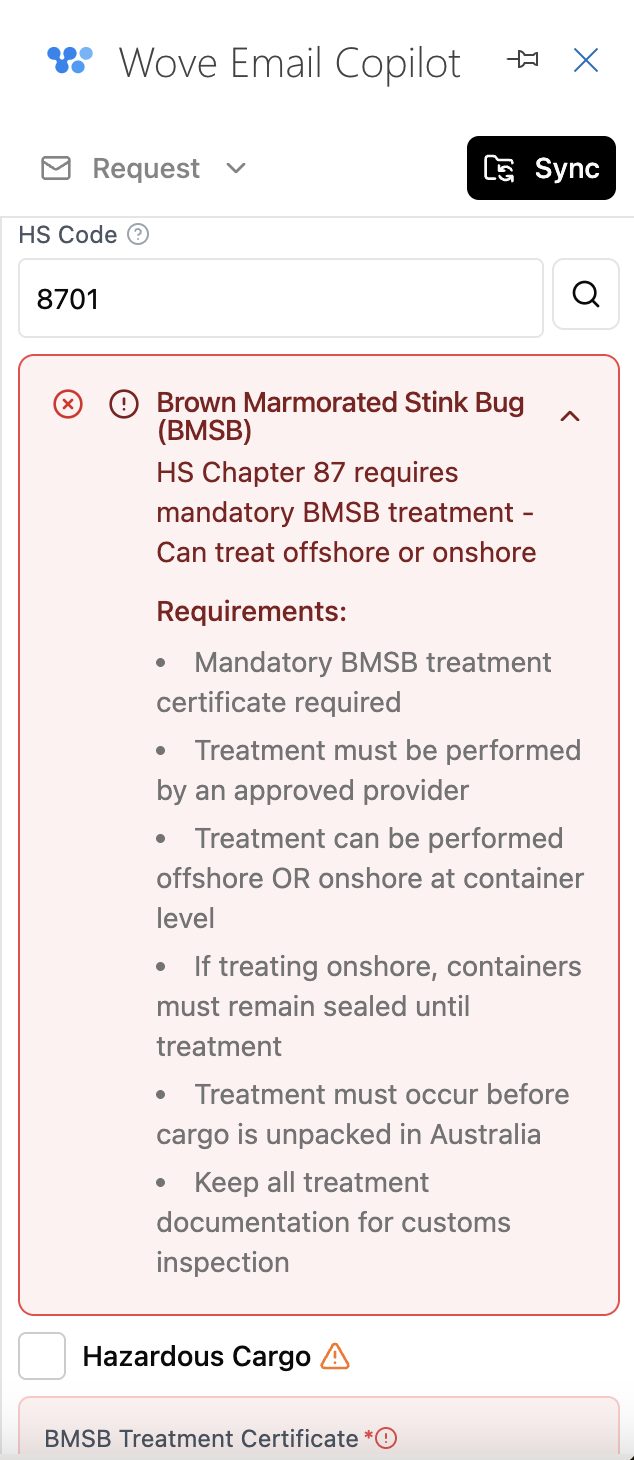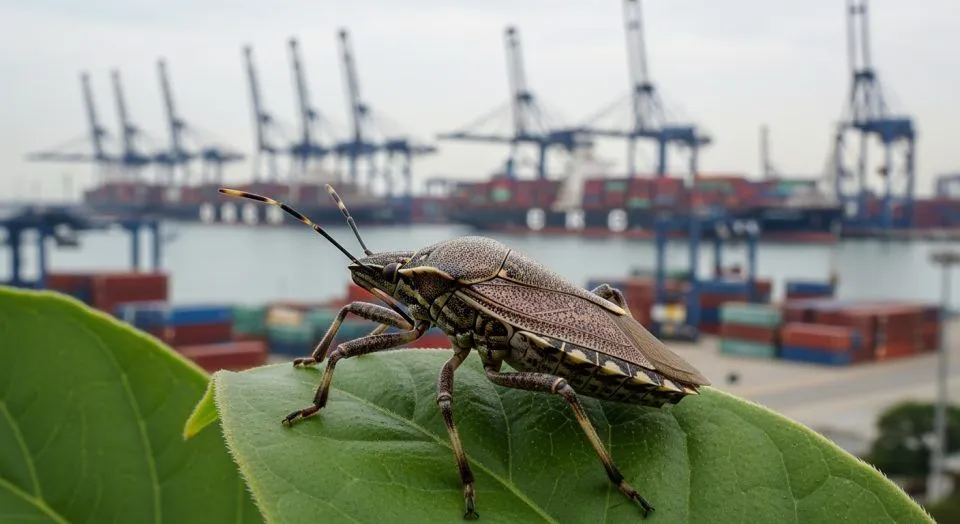.png)
How Wove Helps Australian Logistics Companies Stay Ahead of BMSB Measures
Each year, Australia enforces strict Brown Marmorated Stink Bug (BMSB) seasonal measures to protect its agriculture and environment from this invasive pest. For freight forwarders, importers, and logistics providers, the 2025/26 season brings new rules, new risks, and new operational challenges.
Here’s how Wove helps your team stay compliant while keeping cargo moving.
What’s Changed for 2025/26?
The Department of Agriculture, Fisheries and Forestry (DAFF) has announced several important updates to this season’s BMSB program:
For importers, these changes mean more vigilance at the RFQ stage, greater coordination with shippers, and the need to validate new treatment methods.
Why BMSB Matters
The Brown Marmorated Stink Bug (BMSB) is one of the world’s most invasive agricultural pests. Originating in Asia, it has spread across the US and Europe, causing billions in crop losses.
BMSB is a notorious “hitchhiker,” hiding in:
Its greatest risk period is the Northern Hemisphere winter (Sept–Apr) when the bug seeks shelter in shipments bound for Australia. Once established, it is nearly impossible to eradicate, making strict biosecurity enforcement critical.
Target Countries for 2025/26
DAFF has identified 41 target risk countries for mandatory treatment (e.g., Italy, Germany, USA, Turkey).
Additionally, China, Japan, and the Republic of Korea (along with the UK) are classified as emerging risk countries. Goods from these nations may be subject to random inspection, and vessels calling these ports face heightened surveillance.
Target Goods
Non-compliant shipments risk re-export, costly onshore treatment, or refusal of discharge.
Wove for RFQs: Spotting BMSB Risk Upfront
BMSB compliance starts before the shipment is even booked. With Wove’s Email Copilot, forwarders can identify risks immediately at the RFQ stage.


Wove's Email Copilot automatically flags RFQs with HS Codes subject to BMSB rules and prompts the user to request or upload the required treatment certificate
This allows forwarders to:
How Wove Simplifies BMSB Compliance End-to-End
Beyond RFQs, Wove helps Australian forwarders navigate BMSB requirements throughout the shipment lifecycle:
1. Parsing Treatment Certificates – Automatically extracts provider, method, date, and container details.
2. Validating Providers – Confirms the treatment was performed by an approved company.
3. Standardizing Documents – Converts messy scans or spreadsheets into CargoWise-ready uploads.
4. Flagging Exceptions – Alerts teams to missing or invalid details before cargo arrives.
5. Adapting to New Rules – Automatically checks for updates like Ethyl Formate approval or new country risk categories.
The Bottom Line
The 2025/26 BMSB season runs from 1 September 2025 to 30 April 2026. For forwarders and importers, it represents one of the most complex compliance challenges of the year.
With 41 target risk countries, new emerging risks, and tighter rules on treatments and vessel surveillance, manual tracking is no longer enough.
Wove enables Australian logistics companies to:
Learn how Wove can help your team stay ahead this BMSB season

